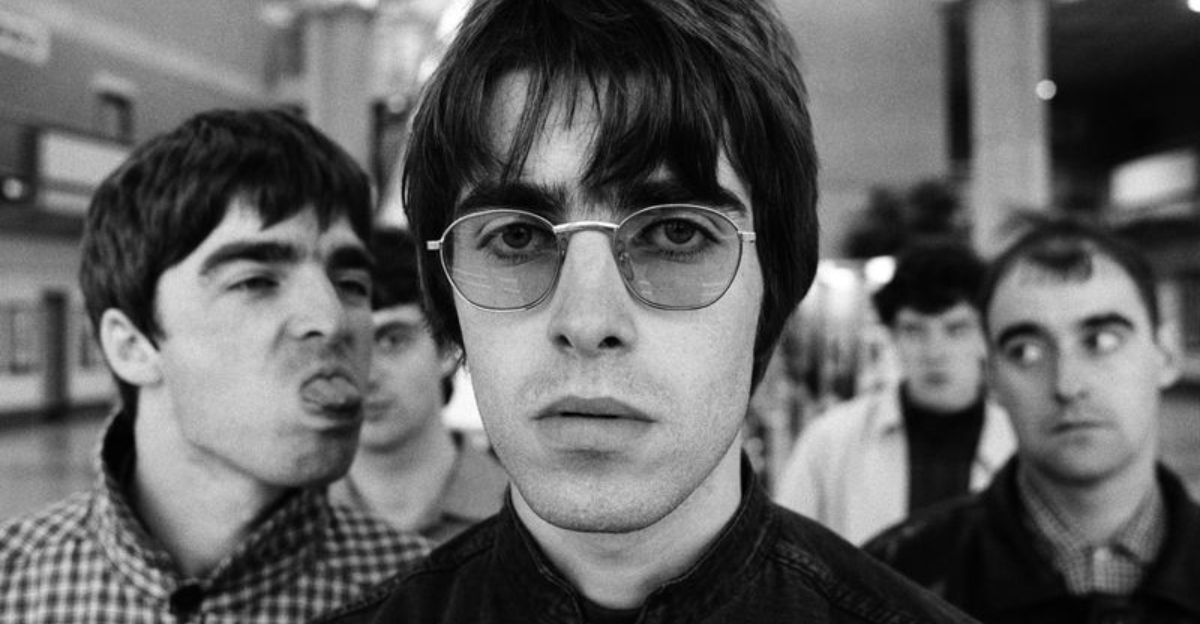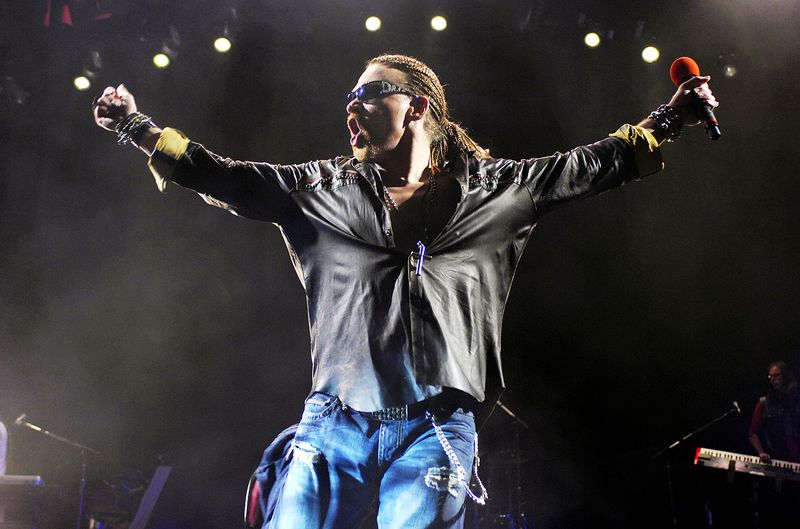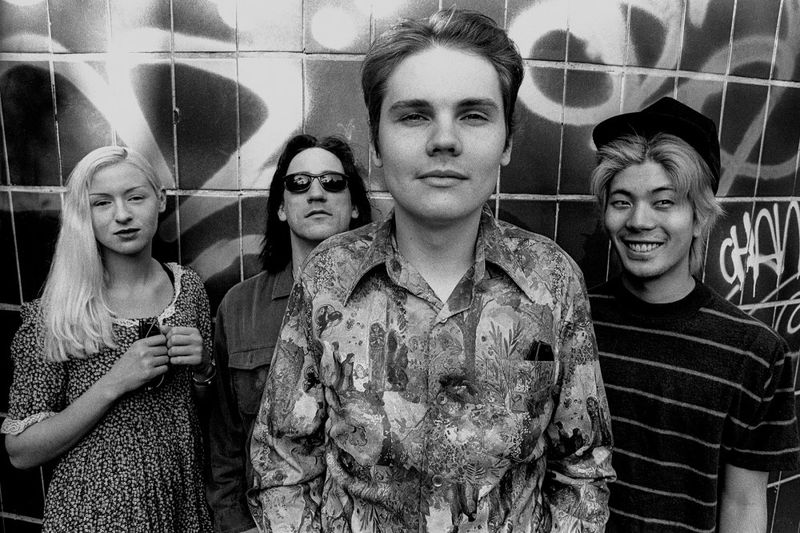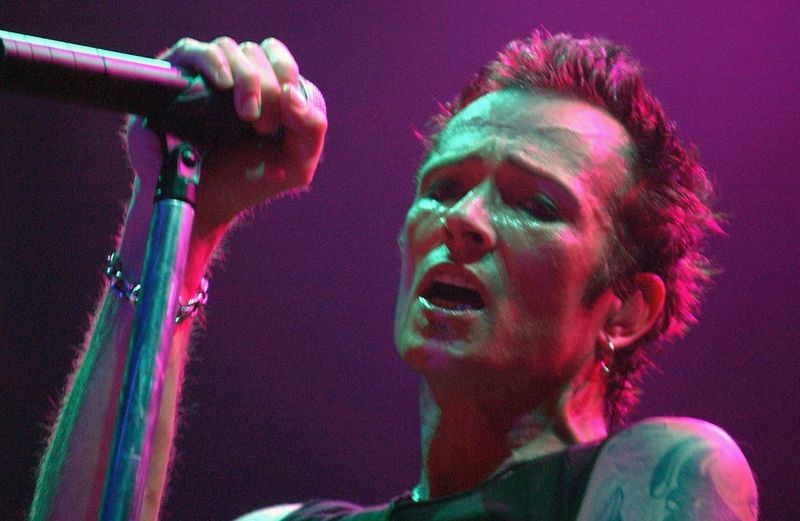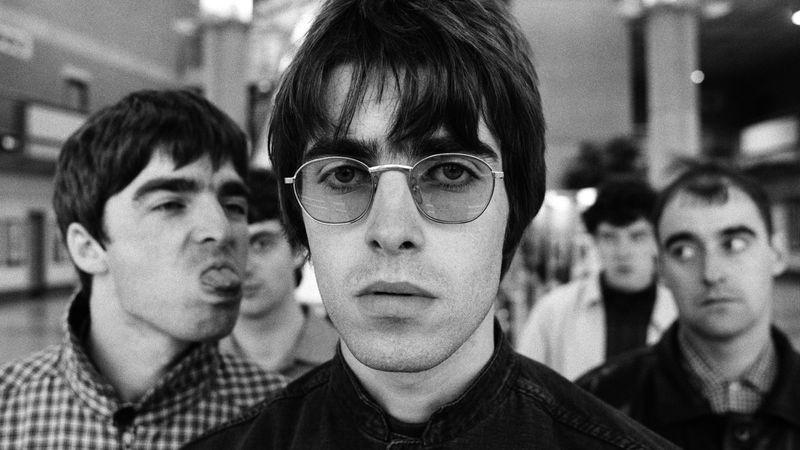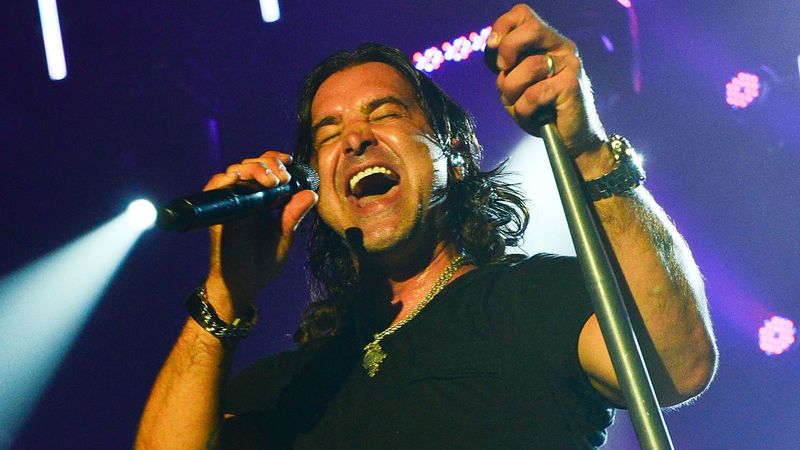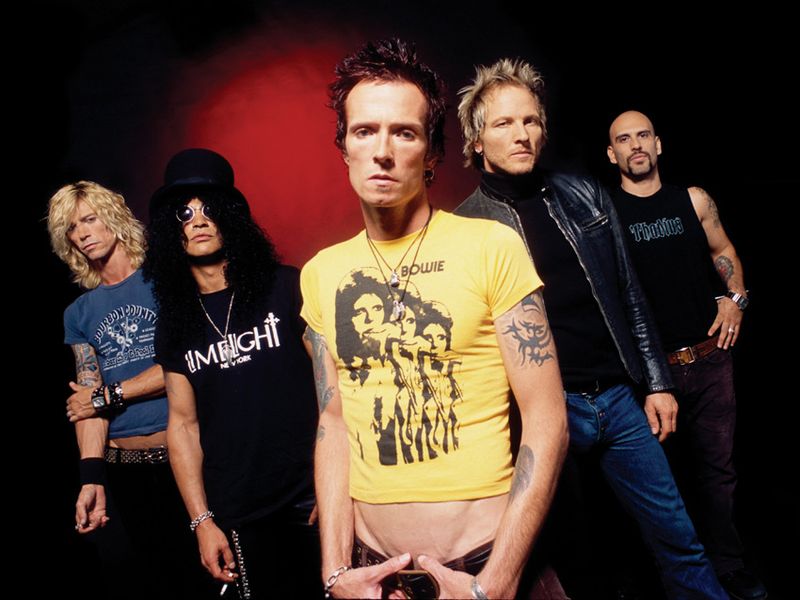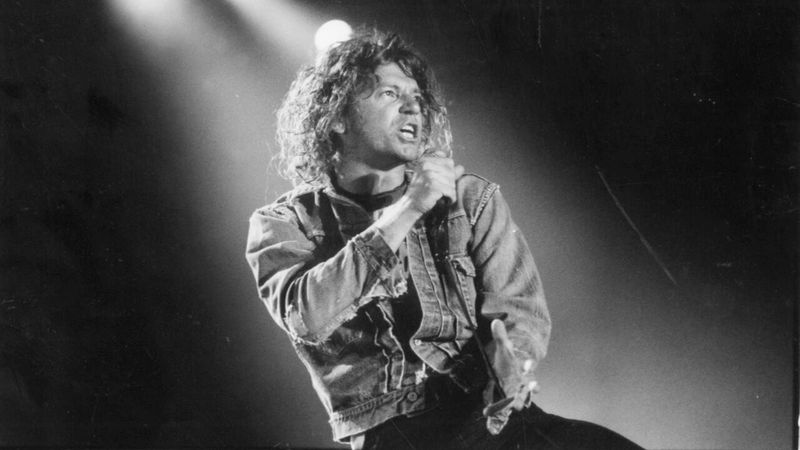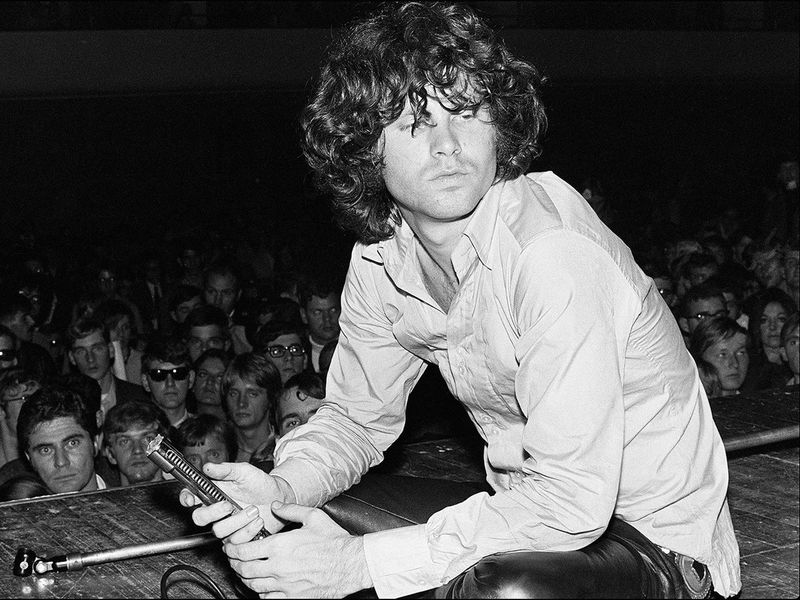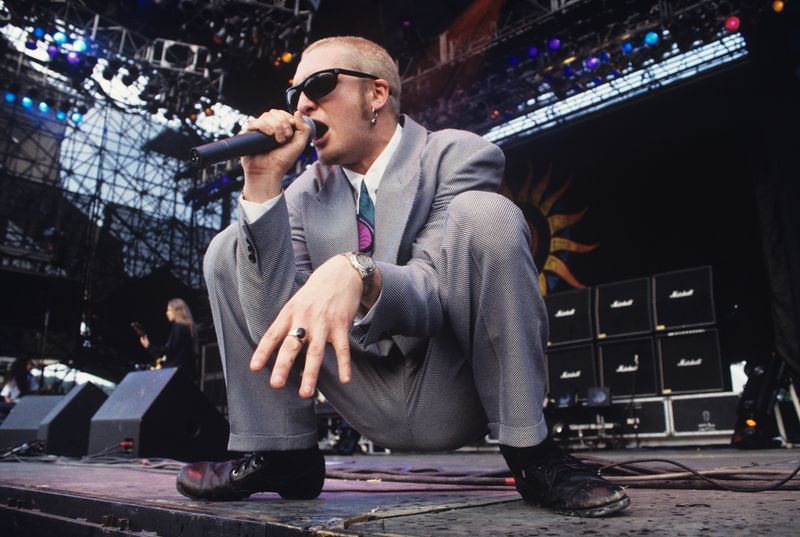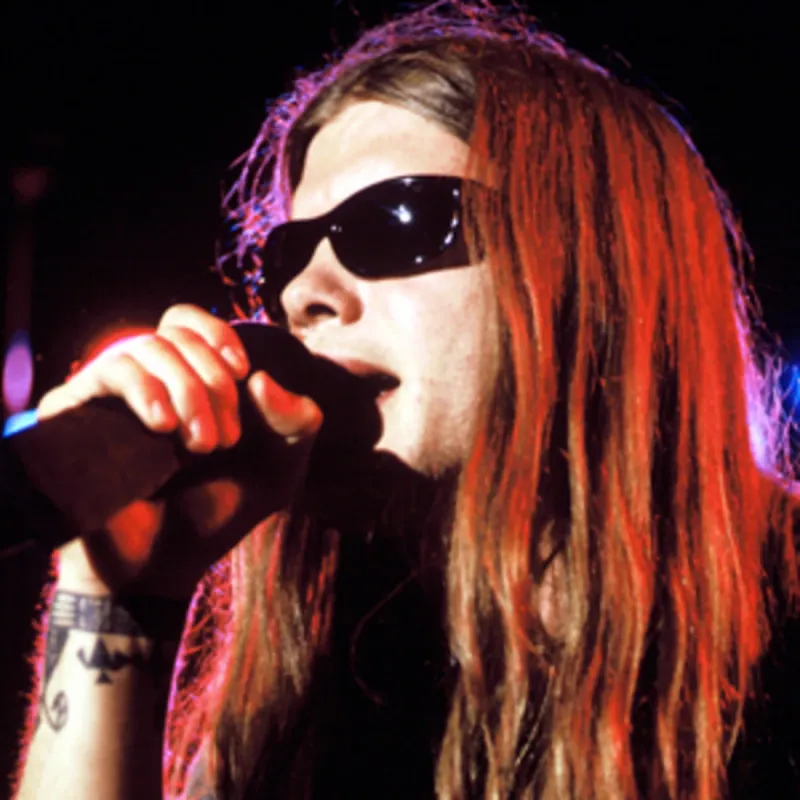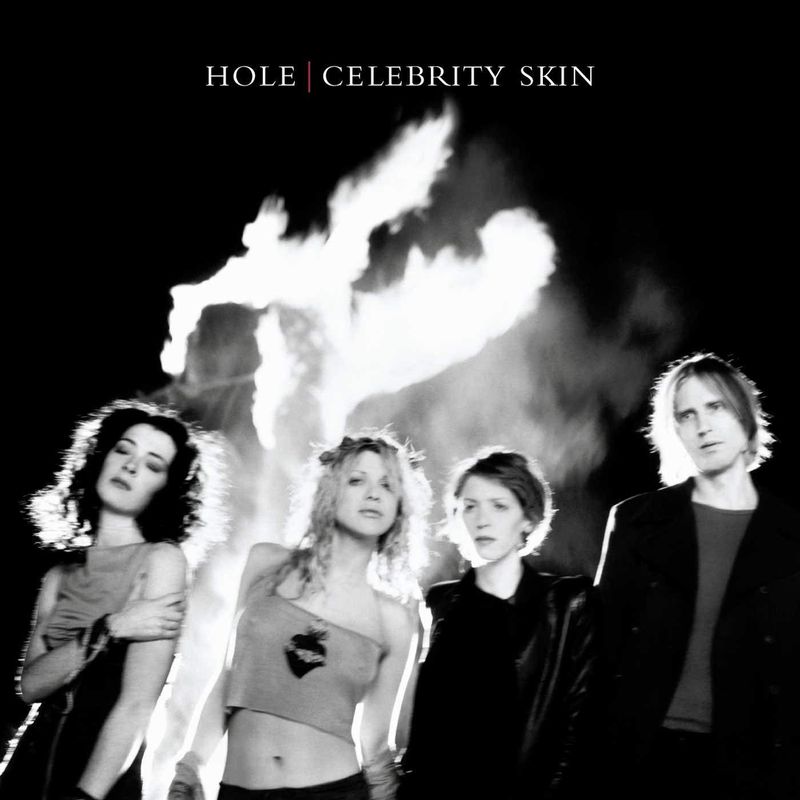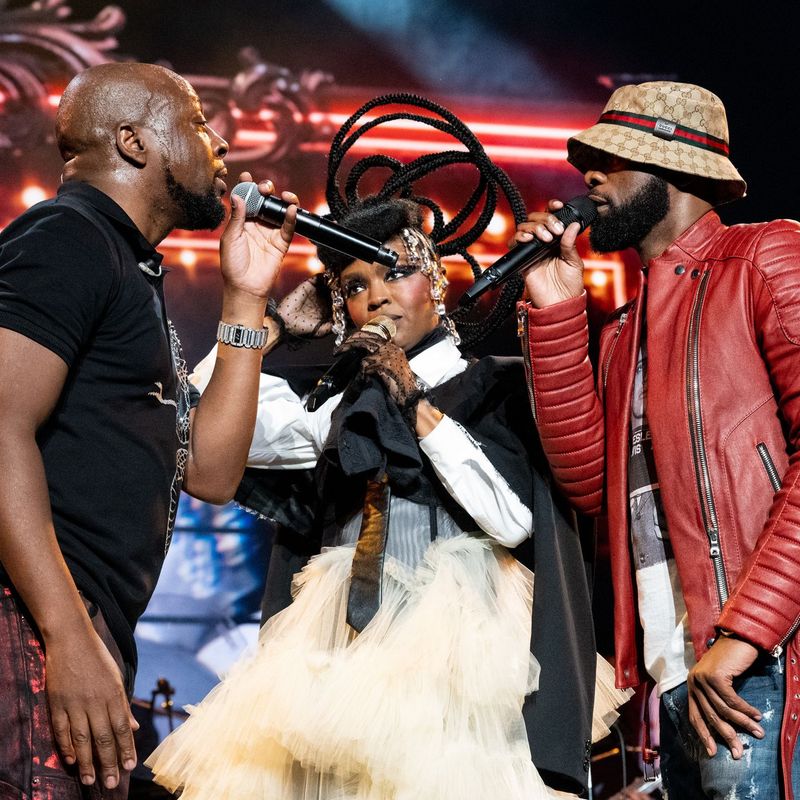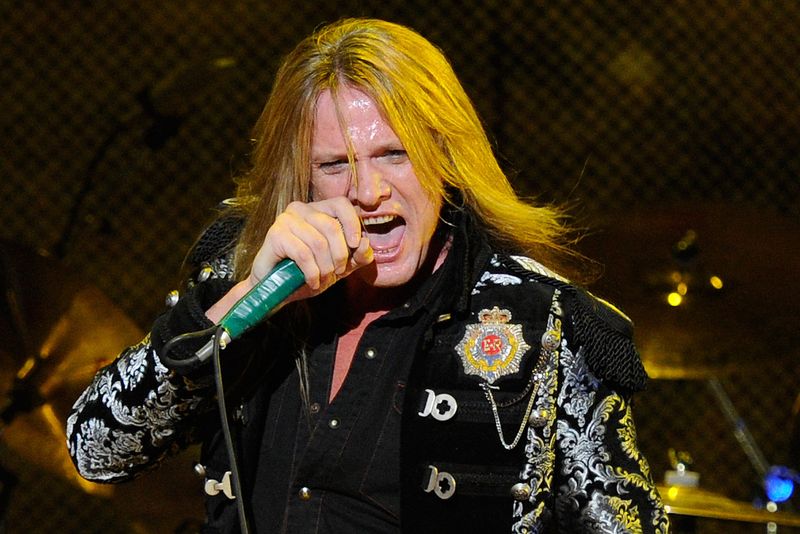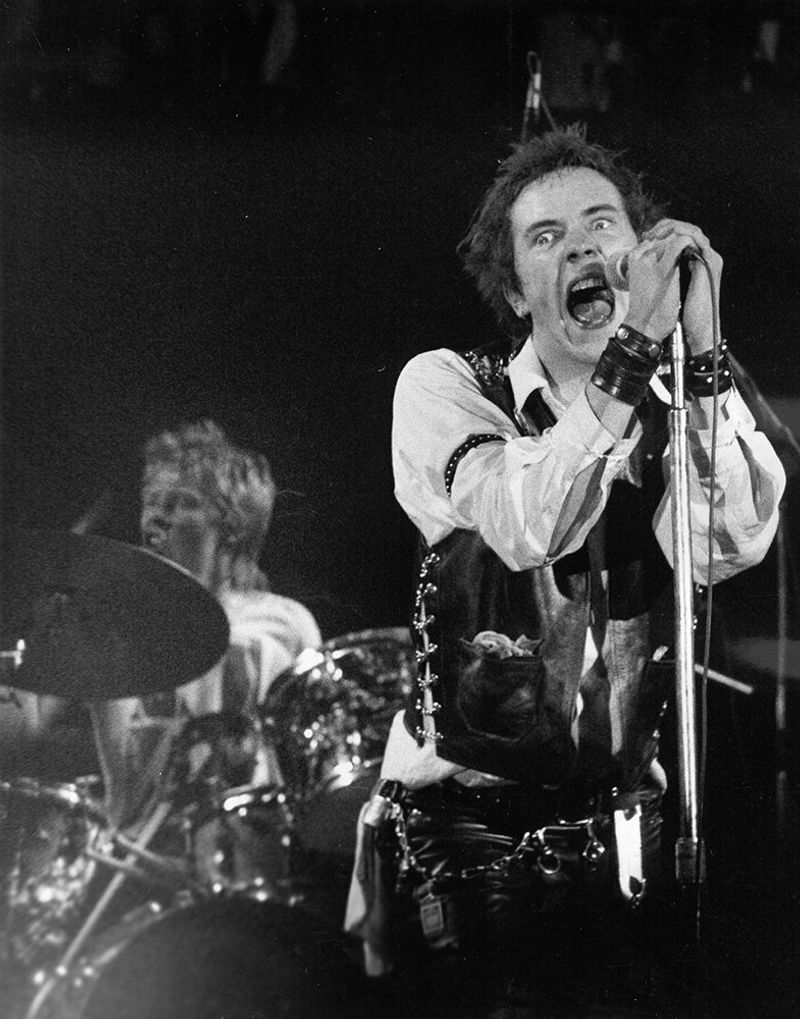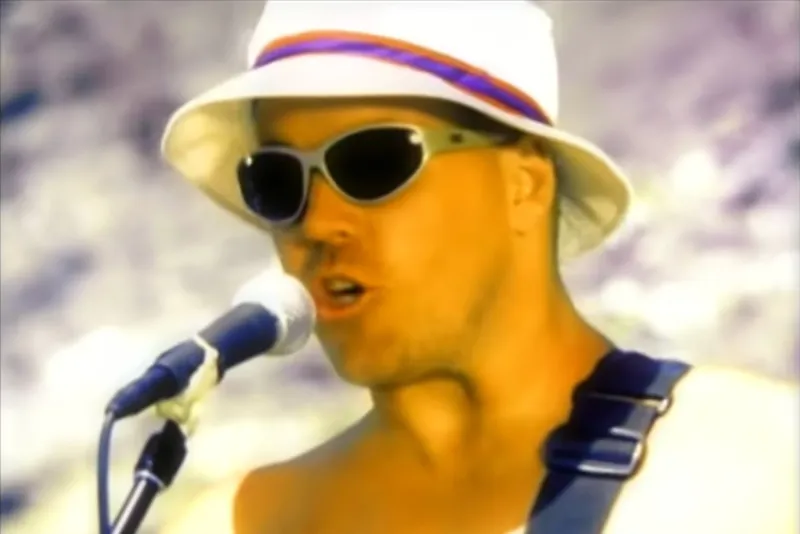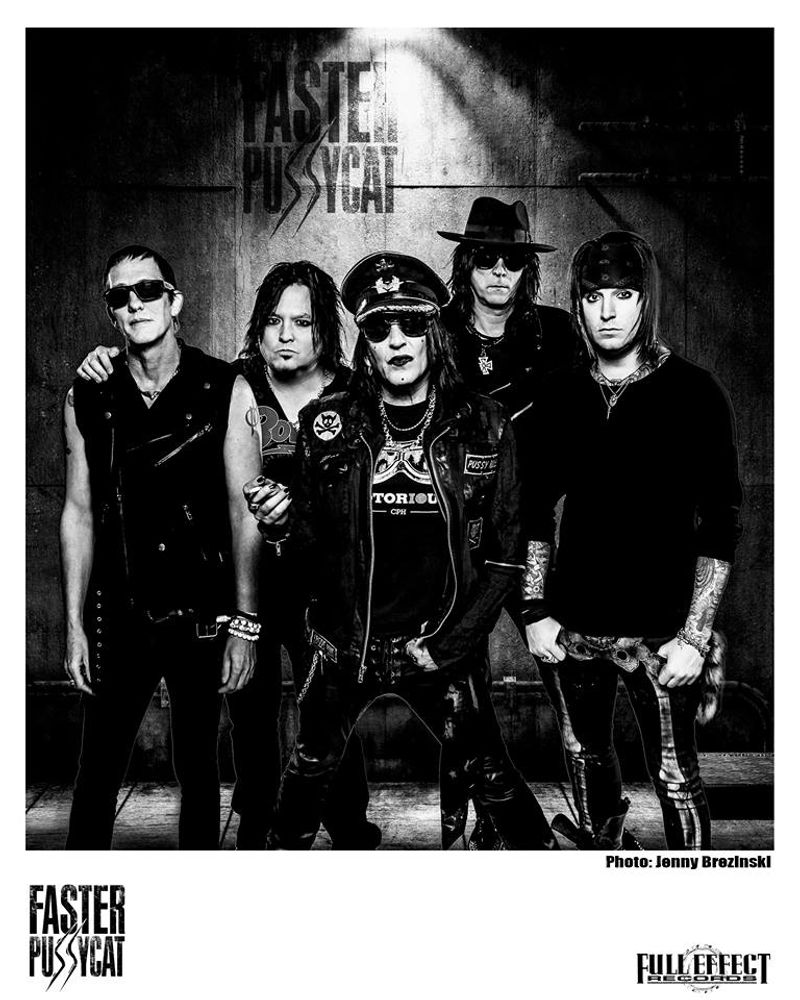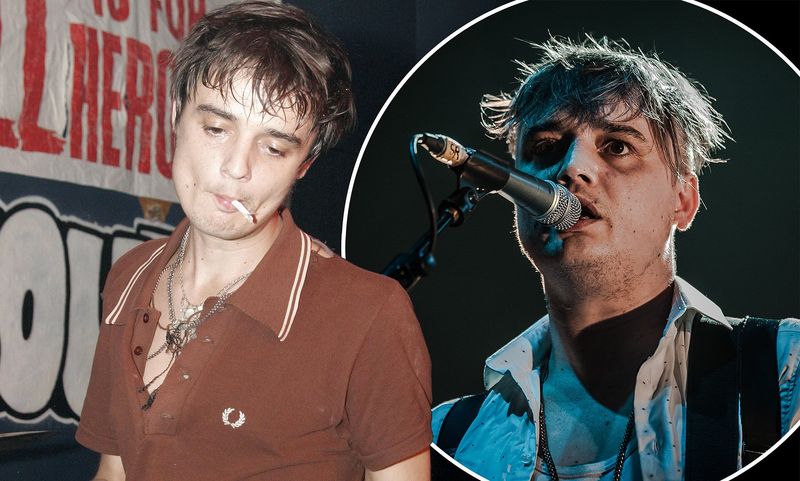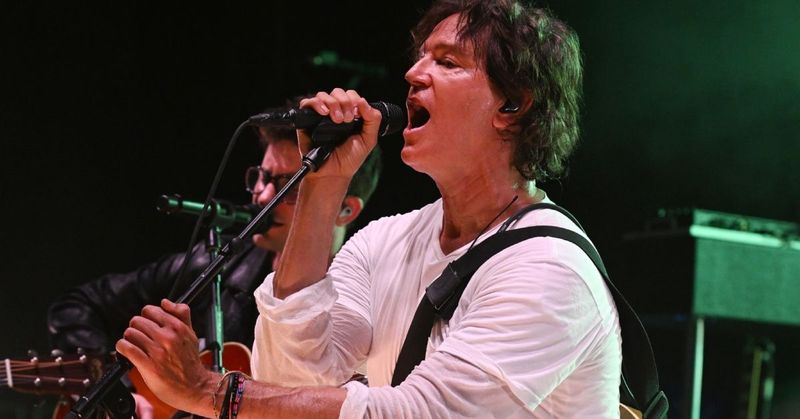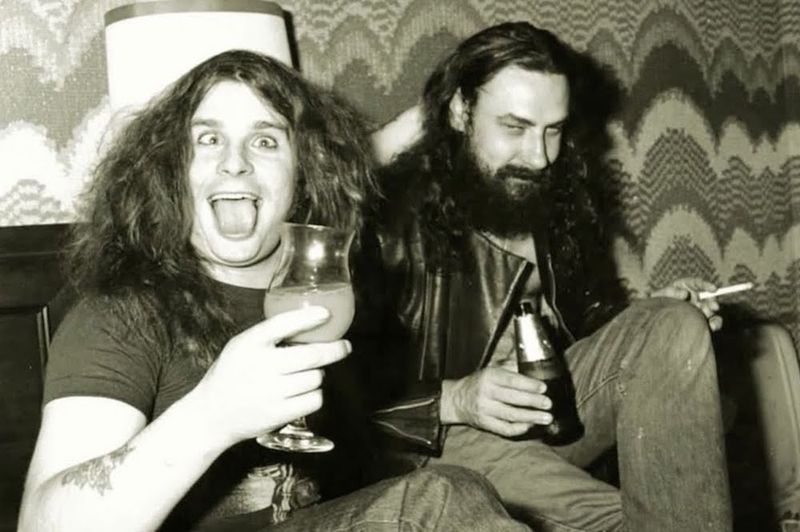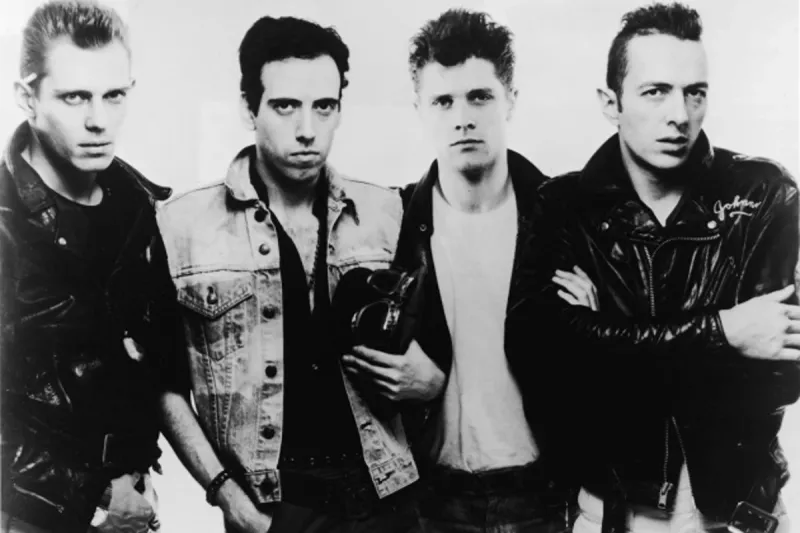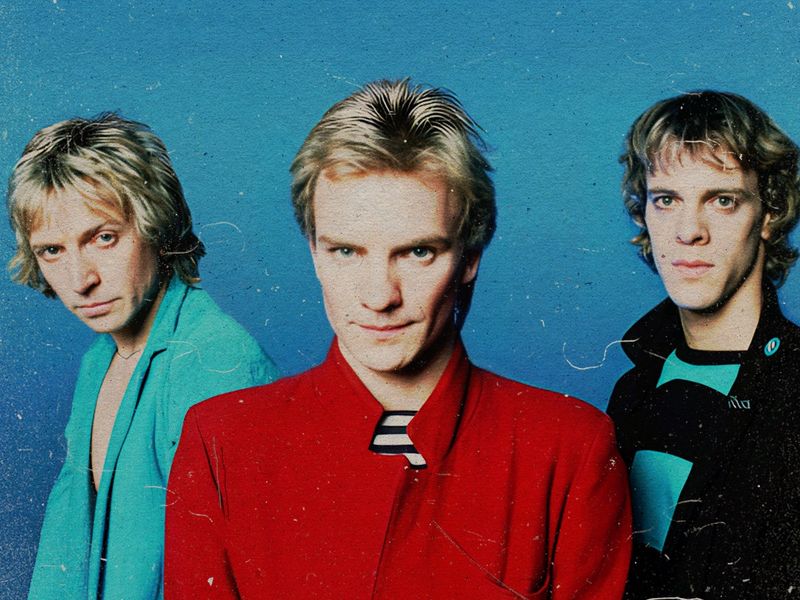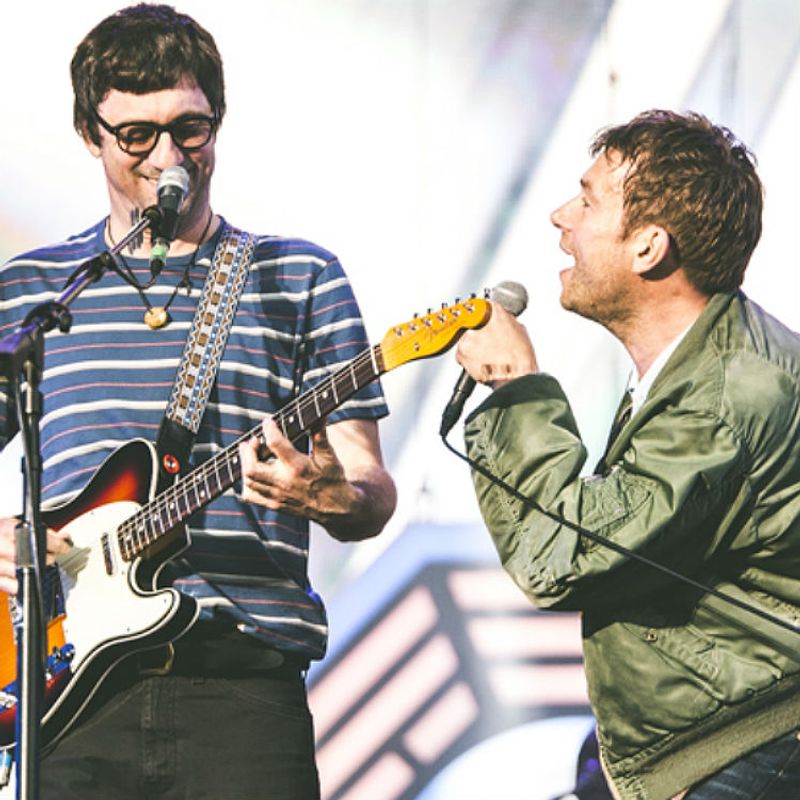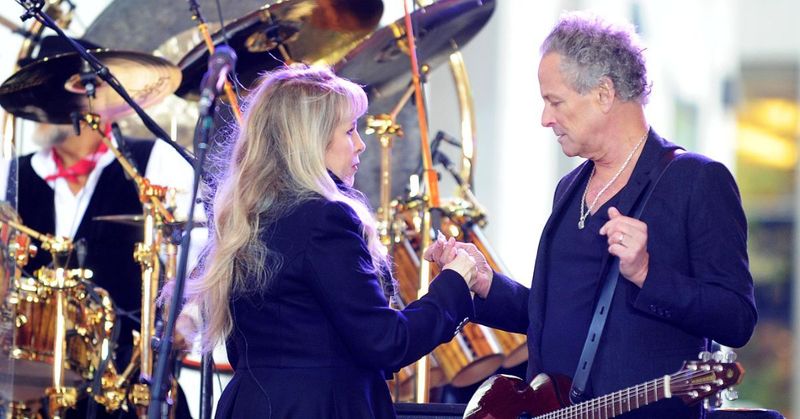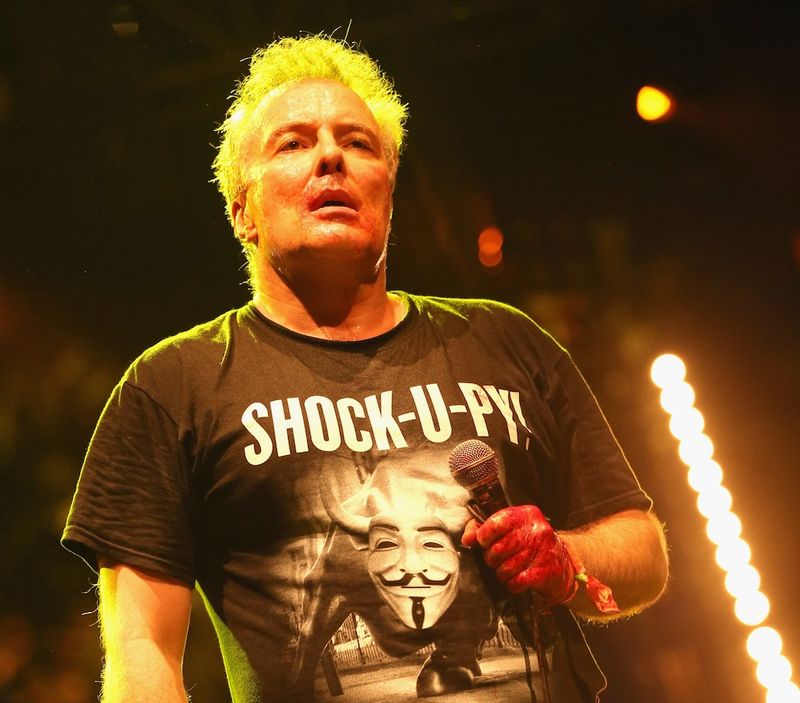Rock bands often break up for lots of reasons, but sometimes it’s the person with the microphone who causes the most damage.
Lead singers can let fame go to their heads, develop bad habits, or just decide they want to do their own thing.
From fights over creative control to substance abuse problems, these 25 bands saw their music careers crash and burn because of the very person who was supposed to be their voice.
1. Guns N’ Roses: When Axl Rose’s Ego Took Center Stage
Axl Rose turned from musical genius to band-wrecking nightmare during the early 90s. His notorious tardiness at concerts (sometimes showing up hours late) and increasingly dictatorial behavior drove away original members one by one. The band’s decline culminated with the troubled production of “Chinese Democracy,” which took 15 years to complete. By then, Rose was the only original member left, turning one of rock’s most electrifying bands into essentially an Axl Rose solo project.
2. The Smashing Pumpkins: Billy Corgan’s Control Issues
Billy Corgan’s perfectionism initially fueled the Pumpkins’ success, with him recording most instrument parts himself on their early albums. However, his controlling behavior eventually alienated bandmates, particularly during the recording of “Siamese Dream.” Tensions escalated as Corgan publicly belittled other members’ contributions. The final blow came when he announced a breakup in 2000, only to later reform the band with mostly new musicians, proving he wanted the Pumpkins name but not necessarily the original Pumpkins people.
3. Stone Temple Pilots: Scott Weiland’s Destructive Path
Scott Weiland’s battle with heroin addiction repeatedly derailed Stone Temple Pilots at their commercial peak. His unpredictable behavior led to canceled shows, delayed albums, and mounting frustrations within the band. Despite multiple comebacks and reconciliations, the DeLeo brothers finally fired Weiland in 2013. His tragic death in 2015 closed the door on any possible reunion, leaving fans to wonder what might have been if demons hadn’t consumed such a charismatic frontman.
4. Oasis: Liam Gallagher’s Brotherly Hate
Liam Gallagher’s volatile relationship with brother Noel provided the explosive chemistry that made Oasis great—and ultimately destroyed them. Their legendary backstage fights often spilled into public view, with Liam’s unpredictable behavior becoming increasingly problematic. The breaking point came before a Paris festival in 2009 when Liam allegedly smashed one of Noel’s guitars backstage. Noel quit on the spot, ending the band that defined Britpop. Their feud continues today, crushing hopes for the reunion millions of fans desperately want.
5. Creed: Scott Stapp’s Messianic Complex
Scott Stapp’s grandiose behavior and substance abuse issues turned Creed from chart-toppers to punchlines. His performance in Chicago in 2002 became infamous when he appeared intoxicated, slurring lyrics and eventually collapsing on stage. Bandmates grew tired of his unreliability and holier-than-thou attitude. After their 2004 breakup, the instrumentalists formed Alter Bridge with a new singer, while Stapp’s solo career faltered amid personal struggles. A brief reunion tour in 2009 couldn’t heal the deep wounds Stapp had created.
6. Velvet Revolver: Scott Weiland Strikes Again
Lightning struck twice for Scott Weiland, who managed to derail another promising band. Velvet Revolver—formed by ex-Guns N’ Roses members—initially thrived with Weiland’s charismatic presence and distinctive vocals. Unfortunately, his old demons returned, with drug relapses and erratic behavior causing tour cancellations. The final straw came when Weiland announced during a concert that fans were witnessing Velvet Revolver’s last tour. The blindsided band members fired him shortly after, ending what could have been a longer-lasting supergroup.
7. INXS: Michael Hutchence’s Tragic End
Michael Hutchence’s death in 1997 effectively ended INXS as a creative force, though the devastated band tried to continue. His magnetic stage presence and sultry vocals had defined the Australian group through their massive hits in the 1980s and early 90s. While personal demons rather than band conflicts claimed Hutchence, his absence proved irreplaceable. The band’s later attempts to find a new singer through a reality TV show only highlighted how central Hutchence had been to their success and identity.
8. The Doors: Jim Morrison’s Self-Destruction
Jim Morrison’s poetic brilliance made The Doors legends, but his alcoholism and increasingly unpredictable behavior threatened their existence. His infamous 1969 Miami concert, where he allegedly exposed himself, resulted in a felony charge and concert cancellations across America. The band recorded their final album with Morrison, “L.A. Woman,” before he departed for Paris. His death there in 1971 at age 27 ended The Doors’ brief but influential run. The remaining members tried carrying on without him but quickly discovered Morrison wasn’t just their singer—he was their identity.
9. Alice in Chains: Layne Staley’s Isolation
Layne Staley’s heroin addiction gradually consumed him, forcing Alice in Chains off the road by 1996. His haunting vocals had perfectly captured the band’s dark sound, making his decline all the more tragic. As Staley retreated into isolation, the band couldn’t function. Their last performance with him in 1996 showed a shell of the powerful frontman he once was. Though technically the band remained together until his death in 2002, Alice in Chains effectively ended years earlier when Staley disappeared into his apartment, unable to escape his addiction.
10. Blind Melon: Shannon Hoon’s Brief Candle
Shannon Hoon’s cocaine addiction cut short Blind Melon’s promising career when he died of an overdose in 1995. The band had just released their second album and were touring to support it when tragedy struck. Hoon had struggled with substance abuse throughout the band’s existence. His infectious energy and unique vocal style had driven their breakthrough hit “No Rain,” but his demons proved too powerful. The remaining members couldn’t imagine continuing without him, and the band dissolved until a 2006 reformation with a new singer.
11. Hole: Courtney Love’s Controversial Spotlight
Courtney Love’s volatile personality and media-grabbing antics overshadowed Hole’s musical achievements. Her marriage to Kurt Cobain and subsequent behavior after his death kept her in tabloids while distracting from the band’s work. Band members grew frustrated with Love’s unreliability and the perception they were merely her backing band. Original members gradually departed, with the final blow coming when bassist Melissa Auf der Maur left. Love later released an album under the Hole name without any original members, cementing her reputation for putting herself before the band.
12. The Fugees: Lauryn Hill’s Disappearing Act
Lauryn Hill’s perfectionism and growing discomfort with fame derailed The Fugees just as they reached their peak. After the massive success of “The Score” in 1996, Hill increasingly distanced herself from bandmates Wyclef Jean and Pras Michel. Her focus shifted to her solo career, resulting in the acclaimed “The Miseducation of Lauryn Hill.” Despite occasional reunion attempts, Hill’s notorious unreliability—including showing up hours late to performances—has prevented any meaningful comeback. What could have been one of hip-hop’s greatest groups was effectively sacrificed for Hill’s solo vision.
13. Skid Row: Sebastian Bach’s Rebellious Streak
Sebastian Bach’s hot temper and loose cannon behavior eventually exhausted Skid Row’s patience. The final straw came in 1996 when Bach wanted to open for KISS, but his bandmates declined the opportunity. This disagreement highlighted deeper creative differences that had been brewing. Bach’s larger-than-life personality had initially helped the band stand out in the crowded hair metal scene. However, his unpredictable antics—including throwing a bottle back at an audience member—became too much for the other members to tolerate.
14. Sex Pistols: Johnny Rotten’s Bitter End
Johnny Rotten (John Lydon) embodied punk’s anarchic spirit, but his contempt eventually extended to his own band. The Sex Pistols’ infamous US tour in 1978 showcased his growing disdain, culminating with him asking the audience, “Ever get the feeling you’ve been cheated?” at their final show. Rotten quit immediately after, leaving the band in shambles. Manager Malcolm McLaren attempted to continue with Sid Vicious as frontman, but Sid’s death from a heroin overdose months later put the final nail in the coffin of punk’s most notorious band.
15. Sublime: Bradley Nowell’s Fatal Addiction
Bradley Nowell’s heroin overdose in 1996 ended Sublime just as they were about to break into the mainstream. Their self-titled album, released after his death, became a massive hit, making the tragedy even more poignant. Nowell’s addiction had been a constant struggle, with bandmates Eric Wilson and Bud Gaugh trying unsuccessfully to help him get clean. His distinctive voice and genre-blending songwriting defined Sublime’s unique sound. Without their creative center, the remaining members initially disbanded, though they later reformed as Sublime with Rome with a new singer.
16. Faster Pussycat: Taime Downe’s Solo Ambitions
Taime Downe’s decision to explore industrial music fractured Faster Pussycat at the height of the grunge revolution. While the band had successfully navigated the sleaze rock scene of the late 80s, Downe’s side project The Newlydeads revealed his changing musical interests. With their glammy image increasingly out of fashion, tensions mounted over the band’s direction. Downe eventually disbanded Faster Pussycat in 1993 to focus on his industrial aspirations. Though he later revived the name with new members, the original chemistry that produced hits like “Bathroom Wall” was permanently lost.
17. The Libertines: Pete Doherty’s Drug Spiral
Pete Doherty’s heroin and crack addiction turned The Libertines from British rock saviors to cautionary tale. His substance abuse led to missed performances and increasingly erratic behavior, straining his relationship with co-frontman Carl Barât. The situation deteriorated when Doherty burglarized Barât’s apartment while the band was on tour without him. Though they attempted reconciliations, the band couldn’t sustain itself amid Doherty’s chaos. Their brilliantly titled second album, “The Libertines,” documented their crumbling friendship before they finally collapsed in 2004.
18. Third Eye Blind: Stephan Jenkins’ Controlling Ways
Stephan Jenkins’ iron grip on Third Eye Blind gradually squeezed out original members. Co-founder Kevin Cadogan was fired in 2000, later suing the band for being forced out after writing many of their hits. Jenkins’ controlling nature extended to songwriting credits and band decisions, creating a revolving door of musicians. Original bassist Arion Salazar left in 2006, followed by longtime drummer Brad Hargreaves in 2023. While Jenkins continues with the Third Eye Blind name, fans of their breakthrough self-titled album hardly recognize the band that remains.
19. Soundgarden: Chris Cornell’s Inner Battles
Chris Cornell’s first departure from Soundgarden in 1997 came amid personal struggles and creative differences that had been building for years. The band had achieved massive success but found themselves exhausted and communication-challenged. While Cornell’s issues weren’t as publicly destructive as others on this list, his decision to walk away ended Soundgarden at their commercial peak. Their 2010 reunion seemed promising until Cornell’s tragic suicide in 2017 permanently silenced one of rock’s most powerful voices, leaving Soundgarden’s second chapter forever unfinished.
20. Black Sabbath: Ozzy Osbourne’s Substance Abuse
Ozzy Osbourne’s legendary substance abuse finally exhausted Black Sabbath’s patience by 1979. His unreliability and decreasing creative input during the recording of “Technical Ecstasy” and “Never Say Die!” created unbearable tension within the band. The final straw came during attempts to write their next album, when Ozzy’s incapacitated state made progress impossible. Though both Ozzy and Sabbath found success apart—with Ronnie James Dio stepping in as new vocalist—the original chemistry was sacrificed to Osbourne’s addictions. Their eventual reunions decades later came only after Ozzy achieved sobriety.
21. The Clash: Joe Strummer’s Dictatorial Decisions
Joe Strummer’s firing of Mick Jones in 1983 effectively destroyed The Clash. Jones had been the band’s primary musical architect, and his dismissal came after increasing conflict with Strummer over the band’s direction. Without Jones’ melodic sensibilities, The Clash released “Cut the Crap”—an album so poorly received even the band pretends it doesn’t exist. Strummer later admitted his mistake, saying, “I feel bad about that now. Mick should have never left the Clash.” By then, punk’s most important band had already imploded, their legacy tarnished by their final output.
22. The Police: Sting’s Massive Ego
Sting’s growing solo ambitions and controlling nature created unbearable tension within The Police. During the recording of their final album “Synchronicity,” band members reportedly recorded their parts separately to avoid conflicts. Stewart Copeland later revealed that Sting would criticize their playing while asserting his musical vision. The band’s massive success only accelerated their demise, with Sting launching his solo career at their peak. Though they briefly reunited for a tour in 2007, decades of resentment were evident in their stiff performances.
23. Blur: Damon Albarn’s Wandering Attention
Damon Albarn’s growing interest in world music and side projects like Gorillaz gradually pulled his focus from Blur. While not as dramatic as other band breakups, Albarn’s creative wanderlust left guitarist Graham Coxon feeling marginalized. Tensions culminated during the recording of “Think Tank,” when Coxon left/was pushed out of the band. Without Coxon’s distinctive guitar work balancing Albarn’s pop instincts, Blur lost the creative tension that had defined their best work. Though they eventually reunited years later, their momentum had been sacrificed to Albarn’s restless artistic spirit.
24. Fleetwood Mac: Stevie Nicks’ Solo Flight
Stevie Nicks’ successful solo career created seismic power shifts within Fleetwood Mac. After her 1981 debut “Bella Donna” topped the charts, Nicks increasingly focused on her individual work, missing band rehearsals and creating resentment. While interpersonal drama had always fueled the band (particularly between Nicks and former partner Lindsey Buckingham), her rising solo star power altered the group’s dynamics. Buckingham ultimately left in 1987, frustrated with Nicks’ divided attention. Though the band continued in various formations, the magical chemistry of their “Rumours” lineup was sacrificed to competing priorities.
25. Dead Kennedys: Jello Biafra’s Legal Battles
Jello Biafra’s control over the band’s business dealings eventually tore apart punk legends Dead Kennedys. In 1998, his former bandmates sued him for unpaid royalties and fraud related to their label Alternative Tentacles. The bitter legal battle exposed deep divisions within the politically-charged group. Biafra lost the case, and the remaining members began performing without him, further widening the rift. The irony wasn’t lost on fans—a band known for anti-corporate anthems destroyed by disputes over money and business control.
